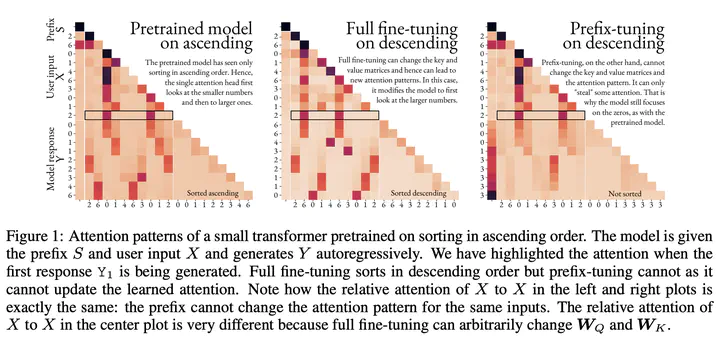
Abstract
Context-based fine-tuning methods like prompting, in-context learning, soft prompting (prompt tuning) and prefix-tuning have gained popularity as they often match the performance of full fine-tuning with a fraction of the parameters. Despite their empirical successes, there is little theoretical understanding of how these techniques influence the internal computation of the model and their expressiveness limitations. We show that despite the continuous embedding space being much more expressive than the discrete token space, soft-prompting and prefix-tuning are strictly less expressive than full fine-tuning. Concretely, context-based fine-tuning cannot change the relative attention pattern over the content and can only bias the outputs of an attention layer in a fixed direction. While this means that fine-tuning techniques such as prompting, in-context learning, soft prompting and prefix-tuning can successfully elicit or combine skills already present in the pretrained model, they cannot learn tasks requiring new attention patterns.